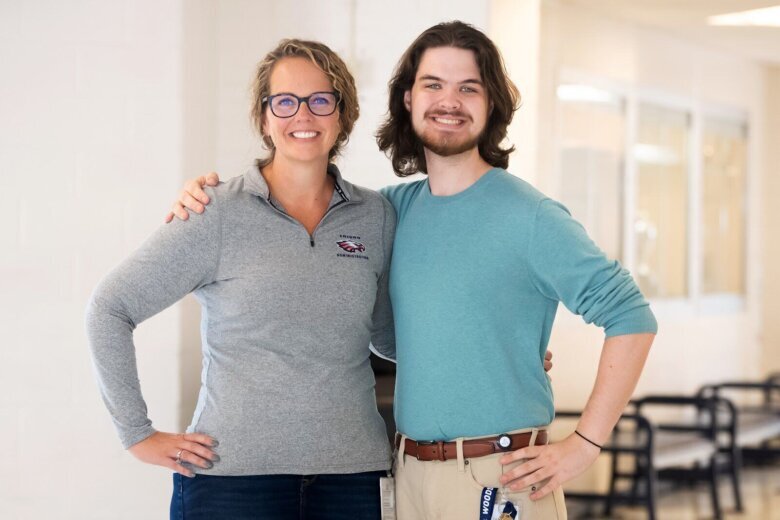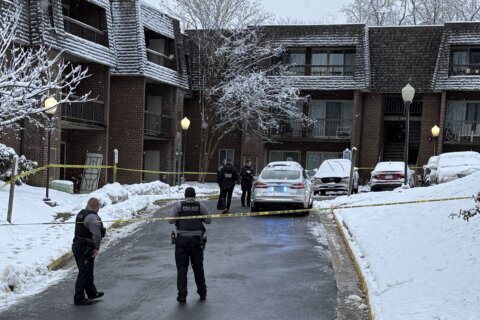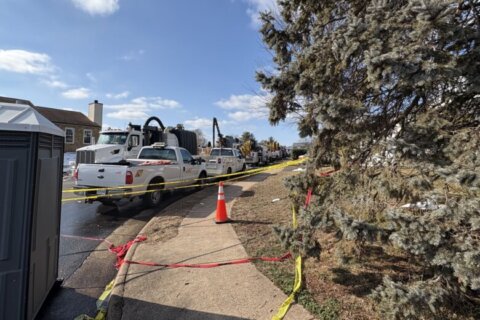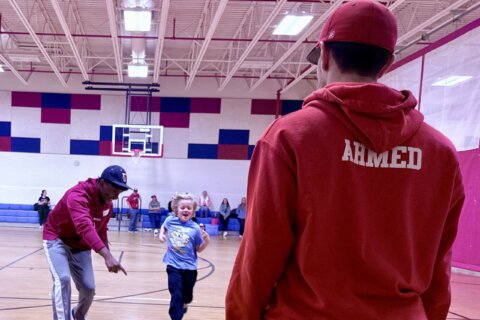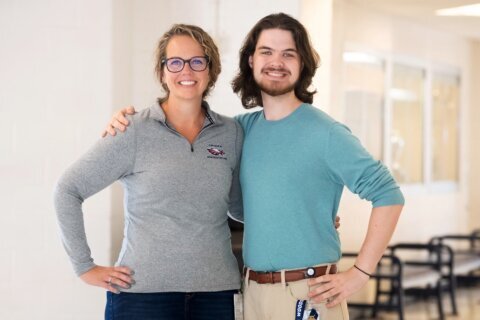
Edison High School Principal Amanda Burke didn’t motivate her son Zachary Foley to also become a special-education teacher.
But he noticed the service she was providing students, and was hired by Fairfax County Public Schools long before his time as a student in Virginia’s largest school system ended.
Foley was hired to work at some theater camps, and was also given the chance to work as a technician for some theater events. He served as a substitute teacher, then became a long-term substitute and started to love teaching as much as Burke did.
So when he was given the chance to get his provisional license and become a teacher at W.T. Woodson High, Foley didn’t hesitate.
Now, Foley is a special education and biology teacher there, one of three educators in his family. Burke’s daughter Corrine is a new multiple disabilities teacher at South Lakes High School this year.
“These kids need someone in that classroom that’s willing to be there not just for a paycheck or just to be there, but to support them and really help them to become learners,” Foley told WTOP. “That’s really what we’re here for, is to help the next generation of learners.”
The passion for teaching started with Burke, who said she always aspired to work in the classroom. She was part of a military family growing up, but “FCPS was home for me, because we lived here on and off most of my life.”
Burke was inspired to work with special education students after doing it at her local high school, and she hasn’t veered from that path since. Even when she was an assistant principal, she oversaw special education.
“Just being able to really have that impact on them, that sent me down my path as far as special education,” Burke said.
Foley, meanwhile, found that he had a unique ability to connect with students.
“I just easily make connections with these kids,” Foley said. “I love hanging out with them and teaching them, and helping them overcome things that a lot of people sometimes don’t have the patience for.”
As a first-year teacher, Foley is working on finding small victories in class, such as “when that one student answers a question in class that never raises their hand, or (when) every student hands in an assignment that day of class.”
While it may have been easy for Burke to not recommend teaching as a career path for either of her kids, she said the motivation is in part “being able to teach students that are going to be our future doctors, next president, whatever it might be. There’s no job more rewarding than setting the students up for their future.”
The three educators are also distinctly positioned to support each other.
“Our dinner table is filled with a lot of reflections on our day, just about how, being in special education myself, I’m able to help support my two [kids] with some of the stuff that they are working through in the classroom, whether it’s paperwork or anything like that,” Burke said.

